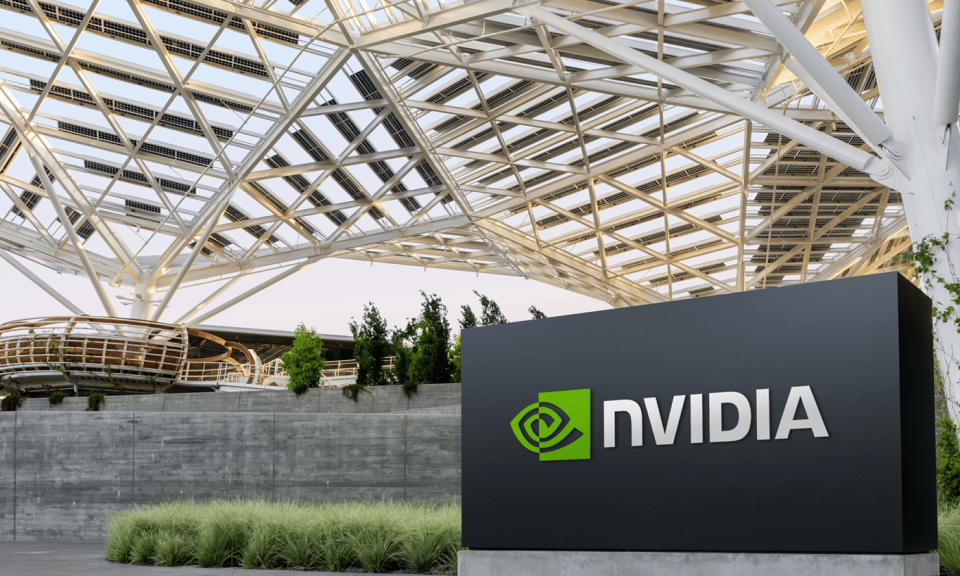Nvidia (NASDAQ: NVDA) isn’t just a leader in developing the key hardware fueling the artificial intelligence (AI) boom. It’s a big investor in other AI companies, often including an equity investment in its business relationships. In December, its portfolio of AI stocks surpassed the $100 million threshold, requiring it to file form 13-F with the SEC disclosing all of its holdings.
Nvidia’s portfolio isn’t very broad, containing just five stocks, and 97% of the portfolio is concentrated in just two holdings.
The biggest piece of Nvidia’s portfolio is ARM Holdings, the chip architecture company the AI giant tried to purchase for $40 billion in 2020. It ended up grabbing a stake worth $190 million at its current price, representing just a small slice of the $100 billion company.

Nvidia’s second-largest holding represents a much more meaningful stake in an innovative AI company. This company has also found favor with Cathie Wood’s Ark Invest, which bought more shares earlier this month, adding to its position as the company’s largest shareholder. Importantly, investors can still invest in the stock near the same level Nvidia did last July. It’s no wonder Wood and her team have been snapping up shares recently.
Nvidia’s second-largest holding is a 3.4% stake in Recursion Pharmaceuticals (NASDAQ: RXRX). The company is using AI to mine data and discover new potential drugs. And if it successfully develops a breakthrough medicine, it could easily turn into Nvidia’s biggest investment.
Harnessing AI to move faster and reduce costs
Recursion is a biotech company that aims to improve the drug discovery process by using big data and AI. It combines public datasets and its own proprietary data to discover new potential compounds. It then uses its algorithms to filter its compounds into viable candidates for development to treat rare diseases or precisely target certain cancers.
Recursion says that its process reduces the number of development candidates from its initial screen to less than 10% of what a traditional drug discovery company might. That allows it to focus only on options with the highest chance of success, enabling it to spend less and move faster.
It currently has five treatments in phase 2 clinical trials. Each one treats a patient population of less than 1 million, with most treating populations of less than 100,000. That means that if it succeeds in bringing one of these treatments to market, it will likely be the only competitor serving that population.
If Recursion can prove that its method is consistently more successful, faster, and more cost-effective than others in the industry, it presents a lot of opportunities. Not only can it continue to discover and develop new treatments, but it can also license its platform to other drugmakers working in more complex areas. That can provide up-front capital to expand its operations.
Story continues
The company already has partnerships in place with Roche and Bayer to help discover oncology targets and neuroscience therapies.
Should you invest with Nvidia and Cathie Wood?
Investing in Recursion is a big bet on the company’s process paying off in a viable drug.
The company currently generates revenue primarily through its collaborative agreements with other drugmakers. That generated a total of $44 million for the company last year, up from $40 million in 2022.
Meanwhile, it’s burning through cash as it works to discover and develop drugs while building out its AI platform. R&D expenses climbed to $241 million last year, up from $156 million the year before. And total operating losses climbed to $350 million from $246 million.
The company ended last year with $392 million in cash on its balance sheet, which gives it some runway. But it will likely need to raise more cash soon to continue funding its operations. That’ll likely come through equity investments, which could dilute shareholder’s stakes.
All this makes Recursion a risky investment. The payoff could be huge, though. It’s a relatively small company with a market capitalization of $1.85 billion. That’s a drop in the bucket for the overall pharmaceutical industry, which generated around $1.6 trillion last year in sales.
For investors looking for a home run stock, you wouldn’t have bad company investing in Recursion. Nvidia backs it along with several other members of the AI and pharma industries, and Cathie Wood has made it one of the biggest holdings in her genomics-focused ETF. But it’s also possible you could swing and miss.
Should you invest $1,000 in Recursion Pharmaceuticals right now?
Before you buy stock in Recursion Pharmaceuticals, consider this:
The Motley Fool Stock Advisor analyst team just identified what they believe are the 10 best stocks for investors to buy now… and Recursion Pharmaceuticals wasn’t one of them. The 10 stocks that made the cut could produce monster returns in the coming years.
Consider when Nvidia made this list on April 15, 2005… if you invested $1,000 at the time of our recommendation, you’d have $506,291!*
Stock Advisor provides investors with an easy-to-follow blueprint for success, including guidance on building a portfolio, regular updates from analysts, and two new stock picks each month. The Stock Advisor service has more than quadrupled the return of S&P 500 since 2002*.
See the 10 stocks »
*Stock Advisor returns as of April 22, 2024
Adam Levy has no position in any of the stocks mentioned. The Motley Fool has positions in and recommends Nvidia. The Motley Fool recommends Roche Ag. The Motley Fool has a disclosure policy.
Nvidia Owns a 3.4% Stake in This Innovative Artificial Intelligence (AI) Stock Cathie Wood Loves was originally published by The Motley Fool
















